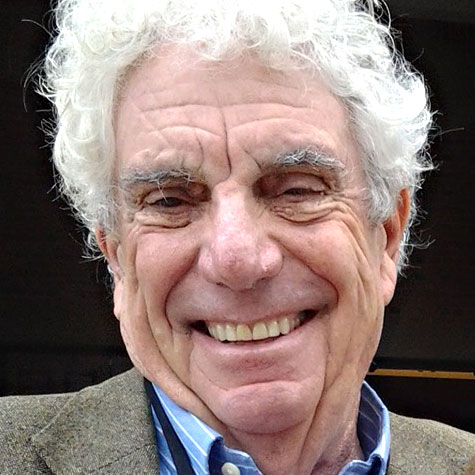The Republicans are praying that President Bush’s embrace of Prime Minister Ariel Sharon’s Gaza withdrawal plan will sway the Jewish vote.
It is a simplistic way of looking at things, although totally in line with the presidential campaign’s simplistic discussion of Israel. For example, there’s no difference between Bush and Sen. John Kerry, the Democratic presidential nominee, on Gaza and the permanence of West Bank settlements.
When Tim Russert asked Kerry on "Meet the Press" whether he agreed with Bush, the senator replied: "Yes."
As the Los Angeles Times’ Ron Brownstein put it, "Kerry probably hasn’t answered an important question in so few words since his wedding day."
You have to feel sorry for the Republican Jewish Coalition (RJC), which is trying to make a cutting-edge campaign issue of such uniform thinking. The RJC Web site, after parsing words and phrases, insists there is "a significant difference" between the two. The coalition apparently hopes American Jews will spend the summer and fall parsing every Israel-related statement of Bush and Kerry and then cast their vote in single-issue fashion for the president.
I think it’s demeaning to suggest that I would cast my ballot on a single issue — whether a candidate supports the Sharon plan, a plan that plenty of Israelis oppose. I don’t want to join the Bush-Kerry footrace to jump on the Sharon bandwagon. That’s not how I vote. Life, politics and Jews are too complicated for single-issue voting.
To investigate this theory, I headed up to that center of complexity, UCLA, where students were celebrating Israel Independence Day April 26.
It was a happy occasion. Students, carrying the flag of Israel and wearing blue-and-white Israel 56 football jerseys sang and danced, their enthusiasm undiminished by the noontime heat of Bruin Plaza.
Interspersed with the music were a few speeches, nothing heavy but enough to hint at feelings more complicated than the simplistic formulations of the presidential campaign
Without getting specific, one speaker talked of how when "we disagree, it shows the freedom to disagree." The meaning was clear, at least to me: Not everyone in the crowd shared the Bush-Kerry love affair with the Sharon plan, but everyone agreed that what Israel represented was freedom to dissent, to participate in a democracy.
Another speaker making the same point in a different way was Rabbi Chaim Seidler-Feller of UCLA Hillel. He did it by reading from this passage from the Declaration of the Establishment of the State of Israel:
"The State of Israel … will ensure complete equality of social and political rights to all its inhabitants irrespective of religion, race or sex; it will guarantee freedom of religion, conscience, language, education and culture; it will safeguard the holy places of all religions; and it will be faithful to the principles of the Charter of the United Nations."
It sounded as though the words were a rebuke to politicians who see the Jewish community moving in lockstep and to Jewish organizational leaders who advocate such behavior.
I got another lesson in the shadings of Jewish opinion on the campus a few days before, when I talked with Ross Neihaus, president of Bruins for Israel.
Neihaus, who came to UCLA from Skokie, Ill., got active in response to a wave of anti-Israel activity by Muslim students that made the campus a pretty tense place.
"It became our goal to take back the campus," said Neihaus, as we chatted in the Hillel lounge.
My first impression was that Neihaus was a hardliner. But as we talked, I saw Neihaus’ views were more complicated than I had thought.
For example, he attends meetings of an Arab student society every week. Occasionally, he’s encountered a chilly reception, but he persists. In the meetings, he tries to see things from "their viewpoint. Their activism comes from real emotion, and they think they are acting morally."
In the minds of presidential campaign strategists, there’s no place for those who try to understand other points of view. Simplistic tactics reign on both sides. Both the Bush and Kerry team figure this is the way to win the Jewish vote and Jewish donors.
But there are other issues that will determine the vote of UCLA’s Jewish students. The Iraq War is one. Dwindling government aid to education is another. The UCLA campus, along with public universities and colleges around the country, is caught up in that issue.
The same is true for other Jews. The overwhelming majority of us stand strong for Israel. But I, for one, don’t want to be insulted by presidential candidates thinking that’s all I care about or to be counted as a member of the Sharon team.
Bill Boyarsky’s column on Jews and civic
life appears on the first Friday of each month. Until leaving the Los Angeles
Times in 2001, Boyarsky worked as a political correspondent, a Metro columnist
for nine years and as city editor for three years. You can reach him at bw.boyarsky@verizon.net.























 More news and opinions than at a Shabbat dinner, right in your inbox.
More news and opinions than at a Shabbat dinner, right in your inbox.